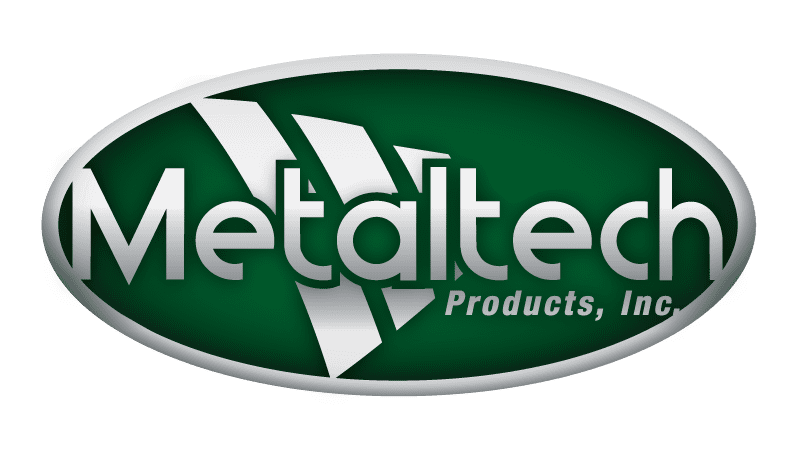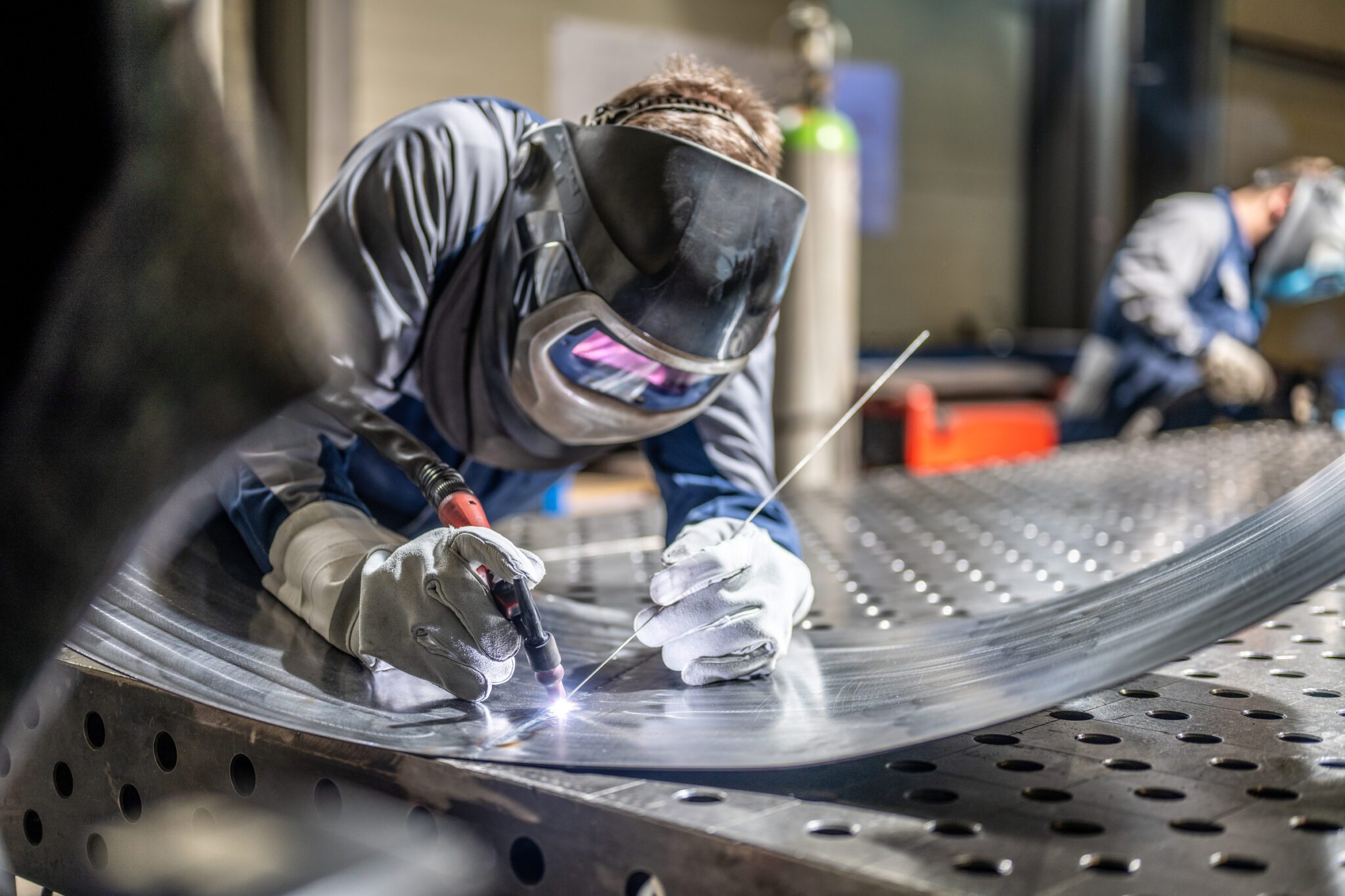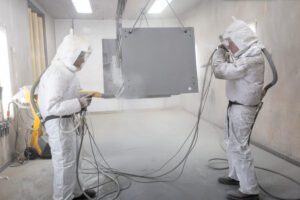When you’re looking for a metal fabrication partner, you want to know they’ll deliver consistent quality every single time. That’s where ISO 9001 certification comes in. This internationally recognized standard for quality management systems sets the bar for how businesses maintain quality control, improve processes, and meet customer expectations.
For fabrication shops, achieving 9001 certification isn’t just about hanging a certificate on the wall. It’s about building a system that ensures every weld, every cut, and every formed part meets the specifications your project demands.
What Is ISO 9001 Certification?
The ISO 9001 quality management system is a set of internationally recognized standards developed by the International Organization for Standardization. It provides a framework for businesses to consistently deliver products and services that meet customer requirements and applicable regulations.
Think of it as a roadmap for quality. The standard doesn’t tell companies exactly how to run their operations. Instead, it establishes principles and requirements that organizations can adapt to their specific industry and size. For metal fabrication shops, this means creating documented processes for everything from design and engineering to welding and final inspection.
The current version is known as 9001 2015, which represents a significant update from earlier versions. This revision places greater emphasis on risk-based thinking, leadership engagement, and improvement based on evidence and data.
Understanding ISO 9001 Certification Requirements
The ISO 9001 certification requirements cover several key areas that transform how a fabrication shop operates:
- Quality Management System Documentation: Companies must document their processes, procedures, and policies. This creates consistency across all operations, whether you’re producing one prototype or a thousand parts.
- Leadership and Planning: Top management must be actively involved in the quality management system. Leadership sets quality objectives and ensures resources are available to meet them.
- Risk Management: Organizations identify potential risks to quality and put measures in place to address them. In fabrication, this might mean evaluating supplier reliability, equipment maintenance schedules, or environmental factors that could affect precision machining or forming operations.
- Performance Evaluation: Regular internal audits and management reviews ensure the system stays effective. These are opportunities to catch issues before they become problems and identify areas for improvement.
- Continuous Improvement: The ISO 9001 quality management system requires organizations to continually look for ways to enhance their processes, products, and customer satisfaction.
What ISO 9001 Certification Means for Fabrication Quality
In custom metal fabrication, precision matters. A component that’s off by even a fraction of an inch can cause assembly problems down the line. ISO 9001 certification’s meaning extends beyond paperwork to real-world quality improvements.
Certified fabrication shops follow documented procedures for every step of the fabrication process. When a laser cutting operator loads a part program, that program has been verified against the customer’s specifications. When a press brake operator sets up for a forming operation, they’re following established procedures that have been proven to produce accurate bends.
The certification also requires traceability. Materials are tracked from receipt through processing to final delivery. This creates accountability and makes it possible to investigate any quality issues that might arise.
Why ISO 9001 Matters When Choosing a Fabrication Partner
When you’re evaluating potential fabrication partners, 9001 certification serves as a reliable indicator of their commitment to quality:
- Consistent Processes: The shop follows documented procedures rather than relying on individual knowledge or memory. This is especially important for repeat orders or when working with complex assemblies.
- Quality Control: Regular inspections and testing are built into the production process, not just performed at the end. Issues get caught and corrected early.
- Continuous Improvement: Certified shops are required to analyze data, identify trends, and make improvements. They’re not satisfied with good enough when better is possible.
- Accountability: When you work with a certified shop, there’s a clear chain of responsibility. Someone owns each step of the process, and management reviews performance regularly.
- Regulatory Compliance: Many industries require suppliers to be ISO 9001 certified. If you serve automotive, aerospace, medical, or other regulated sectors, partnering with a certified fabricator simplifies your supply chain compliance.
The Certification Process and Timeline
Organizations pursuing ISO 9001 certification requirements typically spend 3 to 6 months implementing the system before the certification audit, though this varies based on company size and existing processes. The process begins with a gap analysis, followed by implementation, which involves documenting processes, training employees, and making necessary changes to operations.
Once the system has been running for at least three months (including internal audits and management reviews), the company can schedule the certification audit. The audit happens in two stages. Stage one verifies that required documentation exists. Stage two evaluates whether the system is effectively implemented and producing results. After successful completion, the organization receives its ISO 9001 certificate, valid for three years with annual surveillance audits to maintain certification.
Real Benefits for Custom Fabrication Customers
Beyond the formal requirements, ISO 9001 certification delivers tangible benefits for customers who need custom metal parts:
- Fewer Defects: Systematic quality control catches errors before they become expensive problems. When a welding operation is performed according to documented procedures by certified welders, you get consistent, high-quality welds every time.
- Better Communication: Certified shops maintain clear records and have established procedures for handling customer requirements, changes, and feedback.
- Reduced Risk: The focus on risk management means potential problems are identified and addressed proactively. This protects your project timeline and budget.
- Reliable Delivery: Process controls help certified shops meet delivery commitments. They know their capabilities and plan accordingly.
- Long-Term Partnership: Companies that invest in ISO 9001 certification are thinking about the long game. They’re building sustainable systems, not chasing quick wins.
Frequently Asked Questions About ISO 9001 Certification
How long does it take to get ISO 9001 certified?
Most companies take between 3 to 6 months to implement the ISO 9001 quality management system and achieve certification. This timeline depends on your current processes, company size, and available resources. Smaller fabrication shops might complete certification in as little as 3 months, while larger organizations could take up to a year. The certification body requires that your quality management system has been operational for at least 3 months with completed internal audits and management reviews before the certification audit.
Is ISO 9001 certification worth the investment for a fabrication shop?
The value depends on your business goals and customers. Many companies find that ISO 9001 certification opens doors to new markets, as numerous industries require suppliers to be certified. Beyond meeting customer requirements, the certification process typically reduces defects, improves efficiency, and cuts waste. While there are upfront costs for implementation and audit fees, most fabrication shops recover these costs through improved operations and increased business opportunities.
How long does an ISO 9001 certificate last?
An ISO 9001 certificate is valid for three years. During this period, your organization must undergo annual surveillance audits to verify continued compliance with the standard. After three years, you’ll need to complete a recertification audit to renew your certificate for another three-year cycle.
Do I need ISO 9001 certification to work with OEM manufacturers?
While not every OEM requires ISO 9001 certification, many do specify it as a requirement for suppliers, especially in regulated industries like automotive, aerospace, medical devices, and heavy equipment manufacturing. Even when it’s not mandatory, certification can give you a competitive advantage. It demonstrates your commitment to quality management and gives customers confidence in your ability to consistently deliver parts that meet specifications.
What’s the difference between ISO 9001:2015 and earlier versions?
The 9001 2015 version introduced several important changes from the 2008 standard. The newer version places greater emphasis on risk-based thinking, requiring organizations to identify and address risks throughout their operations. It also requires stronger leadership involvement and focuses more on understanding the context of your organization and the needs of interested parties. The 2015 version eliminated the requirement for a quality manual and reduced prescribed documentation requirements, giving companies more flexibility in how they structure their quality management system.
Making the Right Choice for Your Next Project
Quality doesn’t happen by accident. It’s the result of thoughtful planning, disciplined execution, and continuous improvement. ISO 9001 certification provides the framework that makes consistent quality achievable.
When you partner with a certified fabrication shop, you’re working with a team that has proven its commitment to excellence. From robotic welding to precision forming, every operation follows established standards designed to meet your specifications.
At Metaltech, we understand that your projects demand precision, reliability, and on-time delivery. Our commitment to quality management extends across every service we offer. Whether you need a single prototype or full production runs, our systems ensure consistent results that meet your expectations.
Ready to discuss your next fabrication project? Request a quote or contact us to learn more about how our quality processes can support your success.




